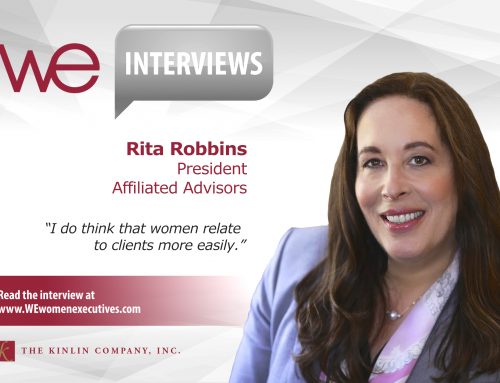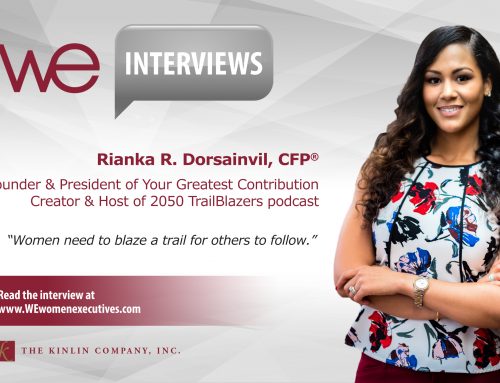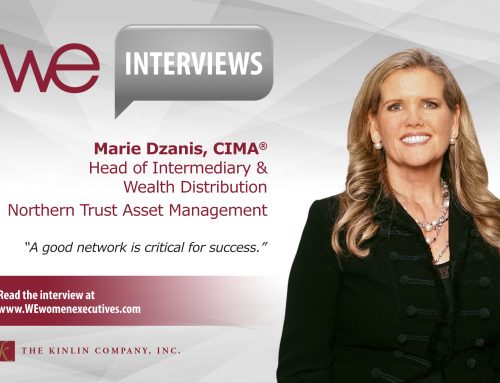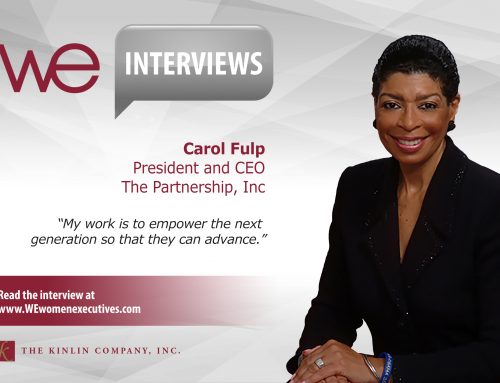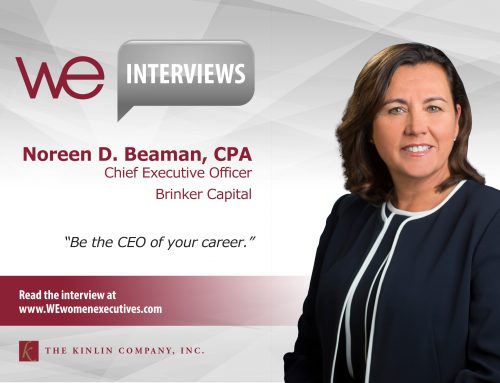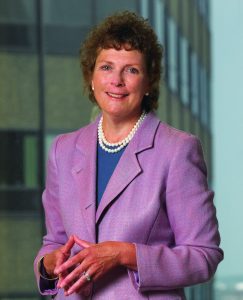 Sandy Urie
Sandy Urie
Chairman and CEO
Cambridge Associates
As the chairman and CEO of Cambridge Associates LLC, a global leader in the field of investment advisory services, Sandy Urie has a vast mandate to fill—her responsibilities include everything from directing the firm’s strategic initiatives and strategic planning to identifying the best steps to implement and reach those goals.
With over 1100 employees spread across eight locations and serving clients in more than 30 countries worldwide, Urie has much to consider. “I spend a good amount of time travelling—probably 75% of my time is external—and that time is spent visiting with current clients, prospective clients, regulatory officials, and asset managers,” Urie explains. “Mine is really a comprehensive external role that takes into consideration many aspects of the business in which we operate.”
With nearly three decades of experience behind her, Urie brings both a seasoned eye and a unique perspective to the field of investment consulting. We sat down recently to discuss her experiences and her views on some of the topics dominating business conversations today.
A Woman in a Man’s World
Sandy Urie’s entry into investment consulting was, at best, unconventional. After graduating from Stanford, Urie joined the faculty of Phillips Academy (Andover) as an instructor in Russian language while also serving on the staffs of the Admissions and Development Offices. Initially, she was on the capital campaign staff at the school and when the campaign ended she moved on to serve as Associate Secretary of the Academy overseeing the School’s annual giving and alumni programs.
When Urie left Phillips to pursue an Master’s in Public and Private Management (MPPM) degree from the Yale School of Organization and Management, she was in the midst of a divorce with a toddler in tow. Over the next several years, she became adept at juggling the simultaneous demands of graduate school and motherhood, a skill that would continue to serve her well as she launched her career.
Prior to graduating in 1985 (“a very different time than it is now,” she observes), Urie began looking for a permanent position, without divulging that she was a single mother with a 2 ½ year old. “It was not their business, it was mine, and if I got the job, I would figure out how to make it work,” she explains.
When Urie interviewed with Cambridge Associates, she noticed that there were more women at the firm. “I wasn’t seeing anybody who looked like me at the investment banks and the management consulting firms,” Urie recalls, “but I was seeing a lot of people who looked like me at Cambridge. I didn’t ask questions about work-life balance—I thought at that time it would have been a red flag—but I just felt a little more comfortable that maybe Cambridge was addressing some of these issues.”
At the conclusion of the recruiting process, Cambridge did learn that Urie was a single mother, but the revelation was viewed as an endorsement of her ability to multitask effectively rather than a liability.
Ability Trumps Gender
A few years after joining Cambridge, Urie quizzed founders Jim Bailey and Hunter Lewis as to how they had come to the realization that a person’s qualifications were more important than their gender. When establishing the firm in 1973, they told her, they realized that women were some of the smartest people in Jim’s Harvard Business School classes, yet they weren’t getting any job offers. So, Urie recalls, they said, ‘OK, half the talent lies in half the population. It was a really pragmatic decision, but we thought that if we could figure out how to attract and retain women, we could actually make our firm a better place for men, too.’
Urie applauds Bailey and Lewis for their foresight, and told me that she’s had the privilege of scaling this value system during the intervening years of the company’s growth. Her primary concern, she says, is maintaining the firm’s core values, no matter the size of the organization.
Today the company operates globally and Urie often finds herself in places where one might expect that a woman’s input would not be valued as highly as a man’s. Yet Urie has never had a problem. “I have never experienced anyone treating me as anything but the professional that I am, and I think it has to do with what you bring to the table—your experience, your expertise, and your credibility. I know gender matters,” Urie acknowledges, “but I haven’t found it to be a barrier. I actually think, in many ways, the value of a diverse group of professionals is about the cognitive diversity that comes from that diverse population and the many points of view that emerge.”
Finding the Work/Life Balance
Although the number of women in the top echelons of asset management firms is growing, their advances are not as great as those being realized in other professional services areas like medicine and law. I asked Urie why she thought that might be.
“I worry a bit that women are trying too hard to plan out their futures, rather than allowing for instances of serendipity, those organic moments in a career that present themselves when you think you’re on another path,” Urie observes. “I’ve never really thought about the work/life balance explicitly, I’ve just found a way to make it work. I never thought it was my employer’s responsibility to make the situation work for me, it was mine.”
Clients, Content, Colleagues
Although Urie found Cambridge Associates’ attitudes towards gender diversity refreshing they were not, she told me, the deciding factor in choosing the firm. “I don’t think I would have liked Cambridge if I didn’t like what the firm does…what attracted me were the types of clients the firm serves: the non-profits. I’d previously worked in a non-profit for nine years and was deeply committed to that part of the economy. I believe that whether you’re working with schools, colleges, universities, foundations, or medical centers, if you’ve helped them achieve greater financial stability, then you’ve helped them do more good in the world.”
The investment world is absolutely the ultimate in a multi-disciplinary life-long learning profession, Urie asserts. “Our work is not just about doing spreadsheets, it’s really broad and deep in terms of the multiple layers of knowledge you need to have. If you’re a lifelong learner, – and most of us are – the investment world is phenomenal. It’s constantly pushing your intellectual curiosity—what does this mean? How do you interpret this? How do you apply this? Is this relevant to the decision I have to make? That’s what keeps me at Cambridge: clients, content (the content of what we do every day), and colleagues. That is a great recipe for me—it’s always worked really well.”
Modeling Your Behavior
When I asked Urie for her top two or three pieces of advice for young women embarking on a career in consulting or investment management today, she smiled and offered instead a roadmap of guiding principles for all young people as they launch their careers that one of her mentors at Cambridge Associates, Ann Spence, developed and to which Urie has added:
- Be nice to people, especially those who work for you.
- Avoid being a threat, especially to those for whom you work.
- Manage expectations of all around you.
- Be known as a problem solver.
- Always pitch in to help.
- Work hard but keep in mind that output matters more than input.
- Be aware of office politics, but try not to engage in them – they are over-rated.
- Never be part of a morale problem. When you have complaints, discuss them privately.
- Always leave your position on a high note, even if you could not stand the job.
- Remember that you do not have to like everyone you work with, but always be professional in behavior.
- Do not let a pay cut stand in the way of moving to a better job. Do not fall into the trap of believing that salary is the best measure of achievement.
- Retain a sense of humor, especially about yourself.
And four more things that Urie encourages all of those just beginning their careers:
- Do something you love—it may take you some time to find that something, but once found it is extraordinarily energizing and satisfying.
- Be good at what you do – usually if you love something you will be good at it.
- It is great if you are able to earn a living doing what you love. But remember money isn’t the only measure.
- Try to have time in your life — in work and outside of work – to do something good for others and the world.
For Urie, this dedication to doing good has expressed itself in terms of the many non-profit clients she has advised over the years and the numerous boards to which she has committed countless hours. Urie told me that more recently, however, she has pared down her board commitments to two corporate boards and the board of ‘100 Women in Hedge Funds,’ which links quite directly with her profession. This, she says, helps her avoid potential conflicts of interest and enables Cambridge to provide valuable services to the non-profit organizations she so values.
Success versus Likeability
Given the wide-ranging conversation about the role of women in business sparked by Sheryl Sandberg’s recent book “Lean In,” I asked Urie whether she, like Sandberg, believes that women must decide between success and likeability.
“I don’t agree—I think it reinforces a stereotype,” Urie asserts. “Ultimately the question for any leader isn’t whether you are liked, but do you care about the people in the organization? Can you be a leader that creates an organization in which people can achieve their professional development goals? This isn’t about likeability; in my view, it’s about ‘Are you focused on creating a successful organization?’”
In her mind, Urie told me, management is not a hierarchical function, but an enabling one, particularly in a professional service firm. “The notion of bureaucracy is anathema to me,” she observed. Urie purposefully keeps the organizational structure at Cambridge as flat as possible and encourages everyone to work together toward common goals. If you care about people and remember to thank those who make it work, she asserted, you will succeed. “For me it’s not likeability, it’s just doing what comes naturally when you’re in a community, and our businesses are communities -treat people the way you want to be treated.”
The Role of Gender Balance
My final question to Urie was on the issue of maintaining gender balance at the firm. I asked her if it played a role in her hiring decisions. Her answer was a decisive no. “If you make sure you recruit in places where you will see a broad cross-section of people, you see people who come from different backgrounds and different experiences. Talent resides everywhere. Not everyone has the same preparation, but talent resides everywhere.
“We’re in the business of giving advice, solving problems, thinking differently, and adapting to the changes that exist in our industry,” Urie concludes. “We benefit from continuous debate—it makes us better as a firm enabling us to serve our clients most effectively.”

